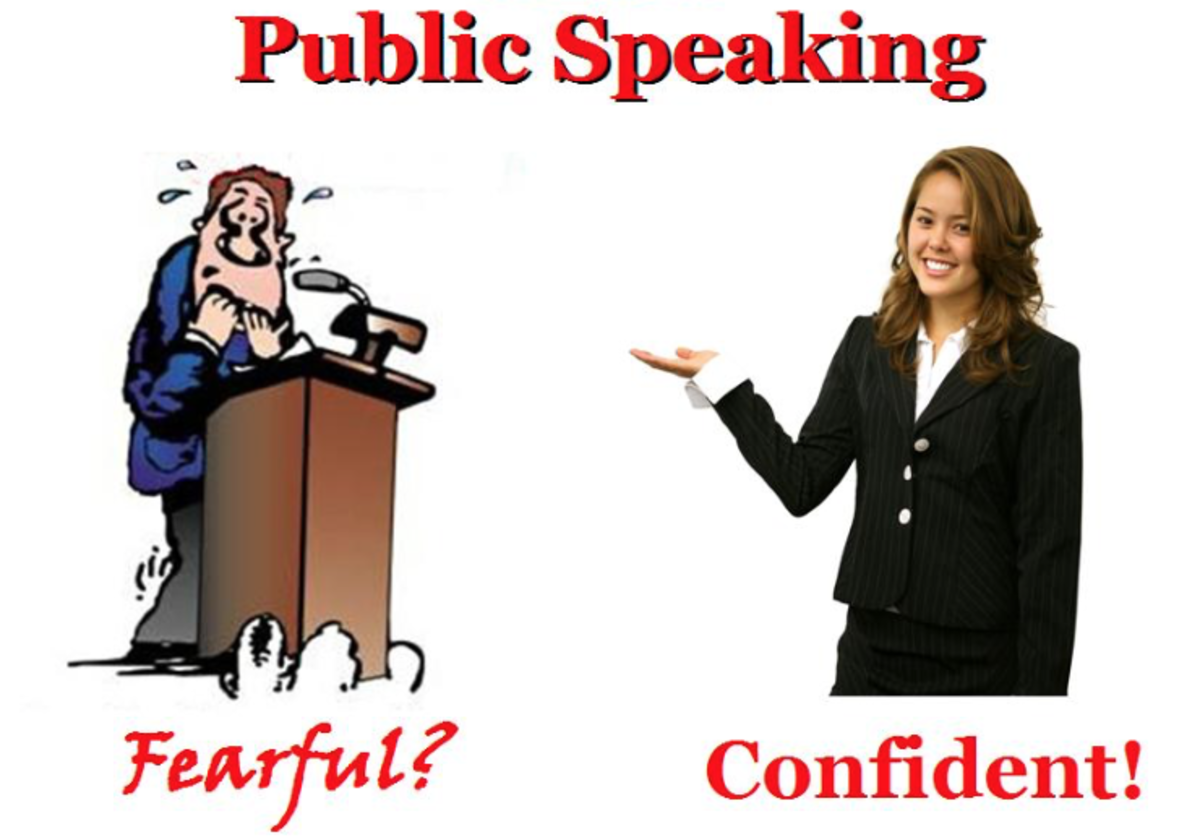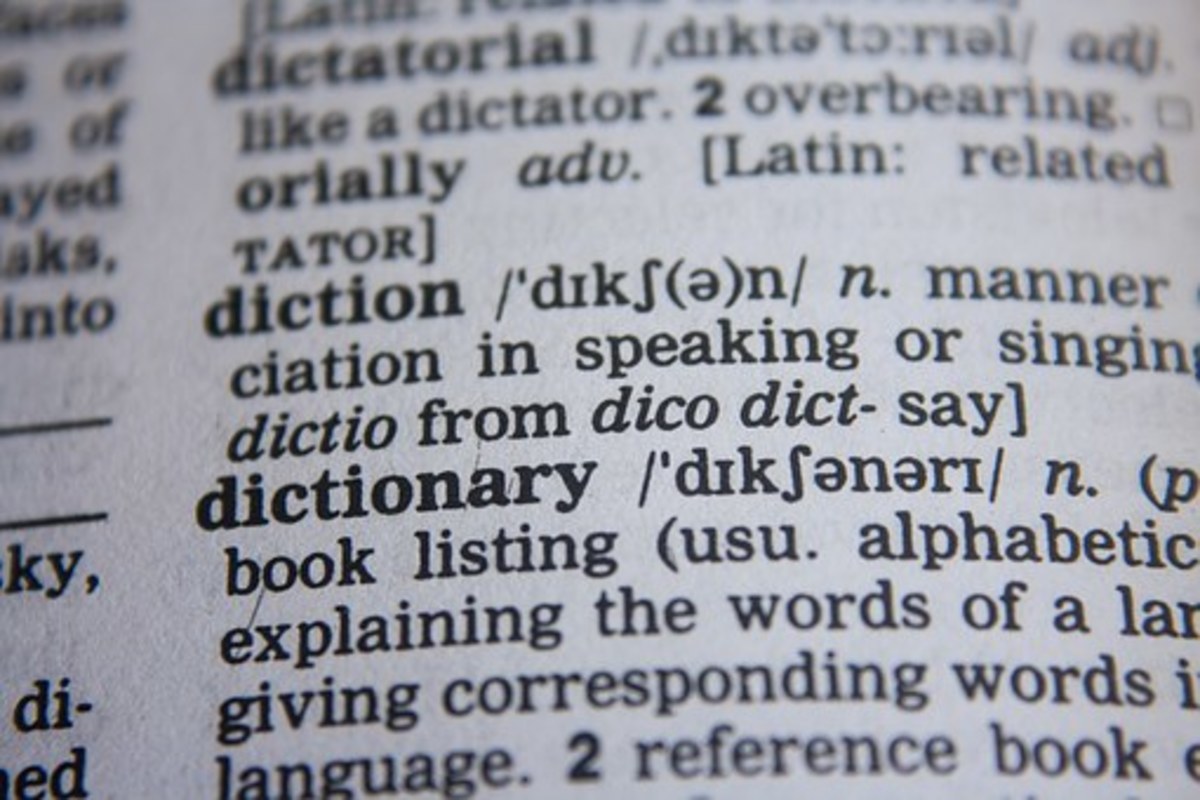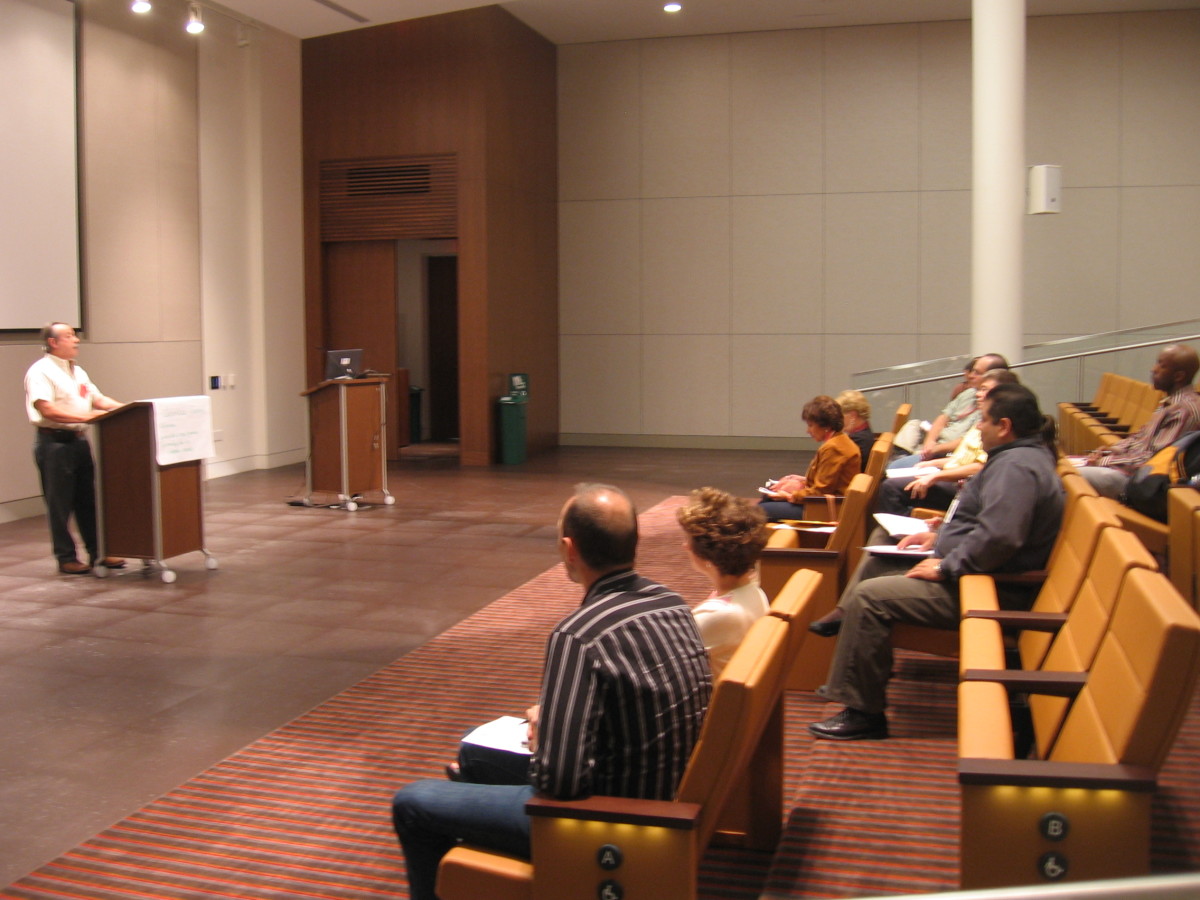Speaking Tips: Improving Public Speaking Skills How to Become a Great Speaker
Tom Ware has been referred to on occassion as 'The Prince of Storytellers'

Speaking Tips: Improving Communication Skills - Competent speaker; effective speaker- or great speaker - that is the question?
You will notice that, in the header, I ask some questions: Do you want to be a competent public speaker? Most people who want to present do. But it is a mediocre level. It lacks something, and we'll talk about what it lacks in a while. Or do you want to be an effective speaker? You do? Then we are getting somewhere. But is still isn't quite enough.
Or do you want to know how to become a great public speaker? Do you want people clamouring to hear you speak; have them hanging on every word, every nuance of meaning, rivetted as they listen with bated breath, longing for what is coming after that long and pregnant pause? You do? Then you've have the first and most important quality of a great speaker: the burning desire to succeed .
Five Requisites of the Great Public Speaker
Many years ago I read my first book on Public Speaking. It was written by an Englishman by the name of Peter Westland and published in what was then a series of books, the 'Teach Yourself" series. In this book the author - who was obviously very accomplished - told the reader that there are five requisites for those who aspire to be outstanding public speakers. Here they are:
1. Desire
2. Sincerity.
3. Knowledge
4. Vocabulary
5. Practice.
So let us examine these. Let us delve into what the writer meant.
An all-pervading desire is essential
The first requisite for the great speaker is a burning desire to succeed. This burning desire will stem from the message or messages the speaker wishes to bring to the world-at-large. He or she will be motivated, maybe even divinely inspired, to bring what they think is something very important to the attention of the listener.
We're not talking about just being a good speaker here. Or even a top speaker. We're talking about a great speaker, a world-mover and shaker. That what you have to aim for. That's what you have to aspire to. As it is said, "A man's reach must extend beyond his grasp, or what's a heaven for?" Reach as high as you can. And keep on reaching as high as you can. That's what I mean by a burning desire.
Speaking Tips: Sincerity is absolutely essential
The second requisite is sincerity. Yes, you can be a comedian sincere in his or her desire to bring light, love and laughter to your audiences. Nothing wrong with comics, providing they are sincere it what they are doing.
You've no doubt heard the hawker down the street, microphone in hand, telling the passers by about the tremendous bargains he has in his shop. He is strident, often articulate, even amusing. But he is rarely convincing. Why? Because he is insincere. People walk by ignoring him. And listeners in audences will mentally walk away from you, if you are not genuine, not sincere.
Third Requiste of the outstanding speaker - Knowledge
Here we are talking of knowledge of the subject. If you're a sailor with forty years of experiences in deep-sea yacht racing, and somebody asks you to talk about golf, and you've never played, give it a miss. Don't risk it. Why not talk about about something relating to the sea? That's your area of expertise.
What do I mean by knowledge? In this instance I mean that you should have a greater knowledge of your subject than the average listener - i.e. most of - the listeners in the audience. You don't have to know more than everyone in the audience. There might be a few there who are more expert, more informed on the subject than you are. But you must know more than the majority who've come to hear you. If you don't, why would they come?
In improving communication skills the fourth requisite - a good "working" vocabulary
What do I mean by a good working vocabulary?
All of us have three vocabularies: firslty, the Knowledge Vocabulary i.e. the meaning of all the words we read. We might know the meaning of a good 30,000 words without having to look up their meaning in a dictionary. So this is our Knowledge Vocabulary; the words we recognize, understand, but don't necessarily use.
Our second vocabulary is our Written Vocabulary; the words we have access to readily in our mind when we write an essay or letter. We actually use these words. We might have a Written Vocabulary of maybe 8,000 words. We use them in our written work.
Then we come to the important one as far as being a great speaker is concerned: our Working Vocabulary; our oral or spoken vocabulary. And make no mistake about it, it contains far less words than either of the other two. We're lucky to use maybe 2,000 words regularly. Most people use far fewer than that.
But the beauty of the spoken vocabulary is that just by increasing it by a couple of dozen words every year, we can increase it significantly as the years go by. It is normal for adults to add four or five words to their working vocabulary every year. But if we deliberately set out to increase it, we can easily multiply that by ten, even twenty!
Colourful Words; Visual Words
Our spoken vocabulary is most powerful if it is filled with colourful, visual words. The Anglo-Saxon or Norse words, the short, single-syllable words, these are the most powerful. Cut, hit, big, grind, gnash, bash. Gather these unto thyself. Long, multisyllaballic words might sound grandiouse and learned: they bore listeners silly.
And have a variety of words with subtle shades of difference, synonyms, e.g. glint, gleam, glimmer, glisten, glitter, or big, huge, gigantic, massive, enormous, gargantuan. Don't keep using that word, great. It's been done to death. It's lazy talk.
The Fifth and Final Requisite in How to Become a Great Public Speaker
Practice...Practice, practice and more practice. Practice at every opportunity. If you're invited to speak, speak. If an opportunity comes up and no one else wants to speak - you speak.
There is a co-ordination process between mind and body which becomes smoother, easier, quicker as you practice: as you actually do it! Theory will embue some confidence: practice will cement it in. You've done it before many times...you can easily do it again.
So, to reitterate, there are five requisites for a great public speaker: A burning desire to succeed and keep on succeeding; sincerity, knowledge of your subject matter, a good, sound working vocabulary, and practice.
If you adhere to these you are bound to keep on improving until...one day, you'll be recognized and acknowledged as...one of the greats. And isn't that what you want?
I hope you gained something from Speaking Tips Improving Communications Skills How to Become a Great Public Speaker.
Good luck.
An additional skill which will make all the difference
Those five essentials still stand, of course. There is one other that I forgot to mention. You must be able to tell stories well. People forget data. They forget statistics, graphs and pie charts. They never forget a good, emotional rousing story. Stories stick. They really do. You remember Goldilocks and the Three Bears don't you. How long ago was it that you heard it? Thirty years ago? Forty? Fifty or more? And you still remember it. Take a lesson from that. So a sixth requisite to be a great speaker is to be able to tell a story well.
We're 'hard-wired' in the brain for story
150,000 years of Evolution has hardwired the human brain, at a deep and primitive level, to interpret meaning by way of concocting stories to make sense of the world. When cave men sat around camp fires discussing the hunt, they told of the group's exploits in story. Story was the only way information could be passed along. The earliest writings, the pictures and hieroglyphics of Civilization were still thousands of years away. The printing press did not arrive until the 1400s, and mass literacy in education wasn't upon us - and even today, in many parts of the world isn't - until around the 1850s or so. Story, oral story was what we had. And what we still have within us. The story is integral to the mind of humankind.








